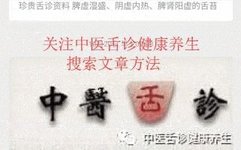
Qi Deficiency Constitution Regulation
Individuals with a Qi Deficiency Constitution are prone to sweating and have a pale complexion, requiring proper nourishment. So, how can one regulate a Qi deficiency constitution?
Basic Principles of Nourishment
To tonify and nourish Qi, as the lungs govern the Qi of the body, the kidneys store the original Qi, and the spleen and stomach are the source of Qi generation and transformation; thus, the spleen, stomach, lungs, and kidneys should all be warmed and tonified.
Dietary Nourishment
For those with a Qi deficiency constitution, nourishment should be gradual, not excessive. Individuals with Qi deficiency are sensitive to the temperature of food, and should consume foods that are mild and slightly warming, as excessively cold or overly hot foods are detrimental. Excessive cold can harm the spleen and stomach, while overly spicy foods can lead to internal heat.
Common foods to tonify Qi include: Jingmi (Japonica rice), Nuomi (Glutinous rice), Xiaomi (Millet), Shanyao (Chinese yam), Bai Bian Dou (White hyacinth bean), Hongzao (Red dates), Longan (Longan flesh), Lianzi (Lotus seeds), Doufu (Tofu), etc.
Foods to limit that deplete Qi include: Bai Luobo (White radish), especially raw radish, youzi (Pomelo), gan (Mandarin orange), Jinju (Kumquat), etc.
Individuals with a Qi deficiency constitution often exhibit symptoms such as fatigue, pale complexion, low voice, spontaneous sweating, and exacerbation of symptoms with exertion. They may also experience palpitations, reduced appetite, pale tongue with white coating, and weak pulse. If ill, symptoms may worsen or be accompanied by shortness of breath, reluctance to speak, weak cough, abdominal distension, loose stools, prolapse of the rectum or uterus, palpitations, mental fatigue, or frequent urination. Generally, the tongue is enlarged with tooth marks, pale with white coating, and the pulse is weak.
Tonifying and nourishing Qi is the principle for regulating a Qi deficiency constitution. Qi and blood are the material basis for life activities, and a person’s Qi, blood, body fluids, and essence all originate from the transformation of the spleen and stomach. A reasonable diet leads to health or mild illness; conversely, an unreasonable diet leads to frequent or severe illness. Therefore, the key to health preservation should be based on diet. Those with a Qi deficiency constitution should select some Qi-tonifying medicinal dishes for nourishment.
Qi deficiency syndromes can affect various aspects of the body:
1. Qi deficiency leads to weak defensive Qi, making the body prone to sweating.
2. Qi deficiency results in malnourished muscles in the limbs, causing overall fatigue.
3. Qi deficiency causes the clear Yang to fail to rise, leading to mental fatigue and symptoms like dizziness and tinnitus.
4. Qi deficiency results in insufficient strength to promote blood circulation, leading to a weak or thin pulse.
5. Qi deficiency can disrupt fluid metabolism, leading to phlegm accumulation and potentially resulting in edema.
6. Qi deficiency may also lead to reduced organ function, manifesting as a series of signs of organ weakness.
Common Qi-tonifying ingredients in daily life include:
Jingmi (Japonica rice), Niurou (Beef), Jirou (Chicken), Liangyu (Carp), Shan yu (Eel), Dazao (Jujube), Yingtao (Cherry), Putaoyou (Grapes), Huasheng (Peanuts), Shanyao (Chinese yam), Yanwowo (Bird’s nest), Huangqi (Astragalus).
Additionally, those with Qi deficiency should also consume Nuomi (Glutinous rice), Sumi (Sorghum), Yumi (Corn), Qingke (Barley), Fenshu (Sweet potato), Nan gua (Pumpkin), Bai Bian Dou (White hyacinth bean), Huangdou (Yellow soybean), Niudou (Beef tripe), Wugui (Silkie chicken), Erou (Goose), Turu (Rabbit meat), Qingyu (Green fish), Yuyou (Squid), Zhagu (Octopus), Shuli (Cooked lotus seeds), Haisongzi (Sea pine nuts), Huoluo (Carrot), Doufu (Tofu), Doujiang (Soy milk), Malingshu (Potato), Xiangxun (Mushrooms), Caoguo (Straw mushrooms), Pingguo (Oyster mushrooms), Fengwangjiang (Royal jelly), Hongtang (Brown sugar), Bai Mu’er (White fungus), Bai Zhu (Atractylodes), Gancao (Licorice), etc.
In spring, it is highly recommended to expel turbid Qi, soothe liver Qi, and promote Yang Qi throughout the body! Health check-ups can reveal signs of diseases and health risks. The nine orifices should be unobstructed; when they are clear, there is no disease! Acupoint health care can regulate organ function and strengthen the body…
Message to Fans: After the WeChat update,“Tongue Diagnosis Health” is struggling to deliver selected popular health information on TCM to fewer and fewer people. To continue serving everyone, please support and motivate the editor! Be sure to comment, view, and share!
⊙ Copyright Statement: Some images and texts on this site are sourced from the internet. If there is any infringement, please contact us for removal. Thank you for your support!
⊙ Respect knowledge and labor. If you need to reprint, please indicate the source as 【Tongue Diagnosis Health】.
⊙ Submission Email:zytongue@126.com (Original submissions are welcome)
⊙ Cooperation WeChat ID: zy100zx100 (For commercial advertisements, public mutual promotion, operational cooperation, etc.)
Warm Reminder: This platform shares health information. The content represents the author’s views and is for reference only. It should not be used as a basis for medical diagnosis. If needed, please use under the guidance of a physician.
Do not keep it private; share it with your circle so more people can know! Wishing us all good health and longevity!
We aim to make professional TCM knowledge easy to understand, effective, and simple for everyone.
Please pay attention, share, and like. Thank you!

